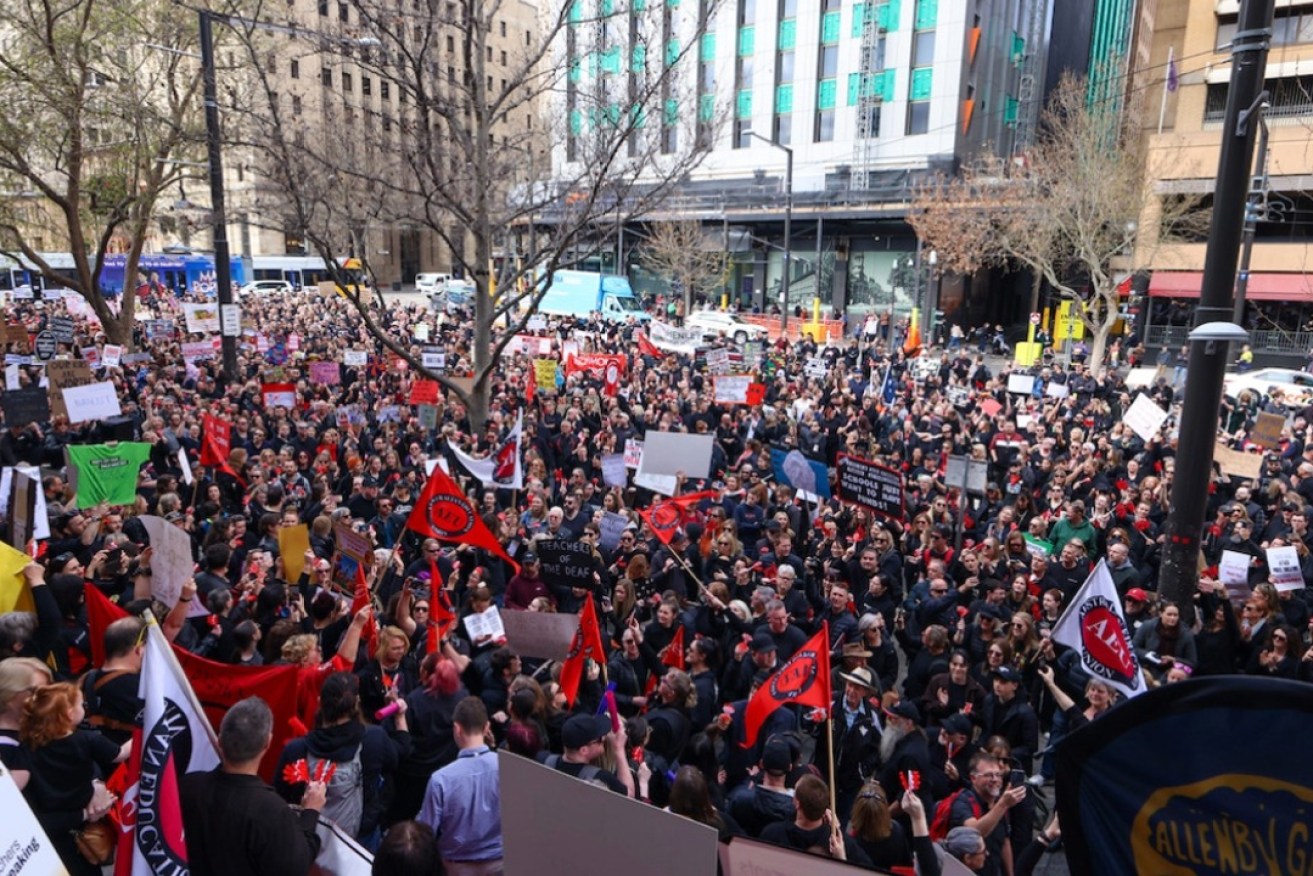Teachers urged to accept new pay deal
Education Minister Blair Boyer says unions are closely watching a $1.6 billion pay offer to South Australia’s public school teachers which would boost salaries by 13 per cent over four years, following months of negotiations and two strikes.


Public school teachers rally at Parliament House during their first strike on September 1. Photo: Tony Lewis/InDaily
The state government hopes the latest offer will ward off more industrial action after teachers in November rejected its last proposal worth $1.4 billion over three years.
A subsequent one-day strike closed more than 170 public schools. Teachers also walked off the job for a day in September.
Under the fourth pay offer signed off by State Cabinet yesterday, primary and secondary teachers would also get an extra hour of time to plan lessons by 2028. Boyer said this would create a need to recruit and pay new staff to backfill so students did not lose teaching hours.
The new offer also includes $16 million each year to reduce the administrative workloads for preschool directors and three more days for mentoring early-career educators, in a deal that the Australian Education Union SA branch says it will urge teachers to accept in a ballot by Friday, December 15.
Asked if unions representing nurses and police would be watching the latest offer to teachers, Boyer told ABC Radio Adelaide: “There’s no doubt about that”.
He said that “we are talking about huge amounts of taxpayers money here at the end of the day” and the months of negotiations over a new teacher pay deal had dragged on longer than the government wanted.
Boyer said the deal, which the AEU said would “take educators from Australia’s lowest paid to a level closer to the national midpoint” also served to attract and retain more teachers.
“We do have an issue nationally with attracting and retaining staff,” he said, with about 70 teaching positions in SA currently vacant.
Boyer looked forward to starting the 2024 school year without disruption from further industrial action but said he told the union action could have been avoided as negotiations had been “on a positive trajectory”.
“I’ve always been upfront from the start that we do need to pay our teachers more,” he said.
The last offer rejected by teachers would would have seen mid-range educators paid an extra $8837 over three years. The AEU had first demanded a 15 per cent increase over three years.
In a letter to teachers seen by InDaily, AEU branch president Andrew Gohl urged them to accept the new offer saying it represents the “largest ever investment in a South Australian education Enterprise Agreement”.
“This offer, while imperfect, provides a strong foundation for our ongoing work to improve working conditions for public educators, as we continue to campaign for an education system that receives the respect and investment it deserves,” he said.
“Through our collective strength, we have been supported by thousands of educators at the bargaining table to secure this offer today.”
The offer would also restore the Country Incentives Zone Allowance for country teachers “who once received it but have since ceased to be eligible represents, on average, an additional three to five per cent increase each year”.
“This will provide targeted support to retain educators in country areas where access to services is difficult and staffing shortages are most prominent,” Gohl said.
“There is no silver bullet to fix a crisis brought by years of underinvestment, but the AEU has secured the most possible through negotiations, supported by our members.”




